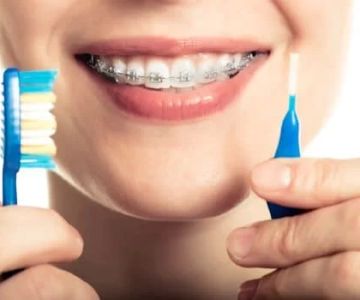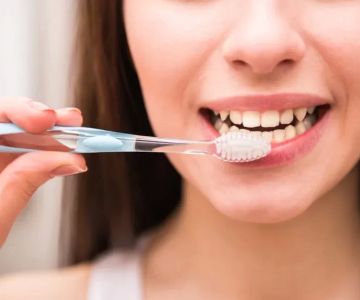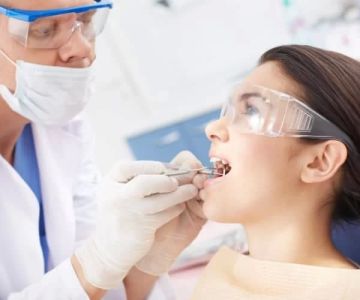Oral hygiene is a critical component of maintaining overall health, yet many people often overlook the importance of comprehensive dental care routines. In the United States, where oral care is a high priority, numerous products vie for a spot in daily hygiene practices – one of the most debated being mouthwash. Recognized for its ability to freshen breath, mouthwash has become a staple in many households. However, does it truly improve oral hygiene, or is it merely a supplementary convenience?
This question invites an examination of mouthwash's efficacy, its benefits, any potential drawbacks, and how it contributes to dental health beyond brushing and flossing. Understanding these aspects can guide users in incorporating mouthwash into their routine effectively, optimizing oral health outcomes.
1. The Composition and Function of Mouthwash
Mouthwash products are formulated with various active ingredients designed to combat bacteria, reduce oral biofilm, and promote a healthier mouth environment. Common components include fluoride for cavity protection, antiseptics like chlorhexidine and cetylpyridinium chloride to kill germs, and essential oils that provide anti-inflammatory benefits.
These ingredients work collectively to minimize the risks of gum disease and tooth decay, making mouthwash a potentially powerful tool in oral hygiene – a point often emphasized in dental circles.
2. Bacterial Reduction and Fresh Breath
One of the primary benefits of mouthwash is its ability to reduce the number of bacteria in the mouth, leading to fresher breath. The presence of alcohol or essential oils in mouthwash helps kill bad breath-causing bacteria, providing a more confident social interaction experience.
Research indicates that using mouthwash can reduce sulfur-containing compounds that result in halitosis, delivering a fresh, clean mouth feeling.
3. Mouthwash as a Preventative Measure Against Gum Disease
Mouthwash can play a preventative role in conditions like gingivitis and periodontitis. By reducing plaque accumulation on teeth and gums, it serves as a barrier against inflammatory gum diseases that could otherwise progress to more severe dental issues.
Dental professionals often advocate the inclusion of mouthwash in daily routines to maintain healthy gums alongside regular brushing and flossing.
4. Fluoride-Based Mouthwash and Cavity Prevention
Fluoride is a mineral heralded for its cavity-fighting capabilities. Mouthwashes containing fluoride offer additional protection by strengthening the enamel and making it more resilient to acid attacks from food and drinks.
Studies have shown that fluoride mouthwash can reduce tooth decay by up to 25% when used correctly, making it a valuable addition for those at risk of dental caries.
5. Potential Drawbacks of Mouthwash
Despite its benefits, mouthwash is not without drawbacks. Some formulations contain high alcohol content, which can lead to a dry mouth and potentially irritate oral tissues. For individuals with sensitive gums or allergies, selecting an alcohol-free option is recommended.
Understanding the ingredients and their respective effects is crucial for users to avoid adverse reactions and maximize mouthwash's benefits.
6. Integrating Mouthwash into an Effective Oral Care Routine
For optimal oral health, mouthwash should be seen as a supplementary aid rather than a replacement for brushing and flossing. Proper dental care includes brushing twice daily with fluoride toothpaste, flossing regularly to remove debris between teeth, and using mouthwash to reach areas that might be missed.
Regular dental check-ups and cleanings at practices like Dentistry Toothtruth can further enhance oral health outcomes by preventing and identifying issues early.
In conclusion, mouthwash indeed provides tangible benefits to oral hygiene, particularly in bacteria reduction, freshening breath, and serving as a protective agent against several oral health issues. While it should not replace traditional dental methods, integrating mouthwash into your daily routine can enhance your oral hygiene practices.
Consider selecting the right type based on individual needs, such as choosing alcohol-free options for sensitive mouths or fluoride variants for added cavity protection. By employing mouthwash appropriately, alongside regular visits to dental professionals, individuals can achieve a holistic approach to maintaining a healthy mouth.







 Westgate Dental Arts
Westgate Dental Arts Coventry Family Dental
Coventry Family Dental Familia Dental
Familia Dental Dr. Daniel S. Fife, DDS
Dr. Daniel S. Fife, DDS Dentistry At Suburban Square: Michael I. Wollock, DMD
Dentistry At Suburban Square: Michael I. Wollock, DMD Comfort Care Dental
Comfort Care Dental The Importance of Oral Health Education During Pregnancy for a Healthy Pregnancy
The Importance of Oral Health Education During Pregnancy for a Healthy Pregnancy Why Skipping Dental Checkups Can Lead to Bigger Oral Health Problems
Why Skipping Dental Checkups Can Lead to Bigger Oral Health Problems Advantages of Porcelain Dental Restorations
Advantages of Porcelain Dental Restorations Best Tips for Brushing Your Teeth Properly for Healthy Gums: Essential Techniques for Oral Health
Best Tips for Brushing Your Teeth Properly for Healthy Gums: Essential Techniques for Oral Health How Can Diabetes Cause Tooth and Gum Problems? Preventing and Managing Oral Health Issues
How Can Diabetes Cause Tooth and Gum Problems? Preventing and Managing Oral Health Issues Healthy Habits for Promoting Good Oral Health and Hygiene: Tips for a Healthy Smile
Healthy Habits for Promoting Good Oral Health and Hygiene: Tips for a Healthy Smile